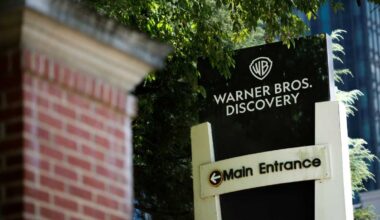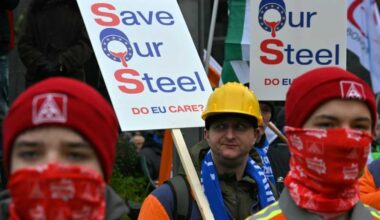In 2004, Kelly Holmes won two gold medals at the Olympics, Strictly Come Dancing waltzed on to our TV screens for the first time and Mark Zuckerberg founded Facebook from his bedroom at Harvard.
It seems like a long time ago, and it is, particularly for stock market listed companies. Many have been and gone since then, battered by a succession of financial, economic and political crises.
Most companies have new skippers too. On average, chief executives hold on to their jobs for little more than five years these days, and each one brings new ideas, new targets and new promises.
An elite group of companies, however, have at least stuck to their guns in one crucial area. According to independent research, these 15 firms have increased their dividends every year since 2004, and a few have managed even longer than that.

Our dividend heroes comprise defence giant BAE Systems, cigarette maker BAT, detergent to hard hats group Bunzl, life and pensions firm Chesnara, shipbroker Clarksons, chemicals specialist Croda International, distributors DCC and Diploma, safety equipment conglomerate Halma, flooring experts James Halstead,
medical centre owner Primary Health Properties, translation specialist RWS, UK software champion Sage Group, top-end engineer Spirax and farming supplier Wynnstay.
The players vary in age, size and industry. Some make things. Some sell things. Some build things. Some provide advice, or support and some offer a blend of services.
We are not including investment trusts, but each member of this team is listed on the UK stock market and they have all managed to reward investors with increased payouts every single year. That is no small feat.
Dividends are a crucial element of investing in the stock market, signalling that a company is financially robust. They also prove that shareholders are valued and recognised as the ultimate owners of a business.
London-listed firms have something of a talent here.
The UK market is well known for the store it sets by dividends, and investors would be hard pressed to find our top team’s equivalent in American, Asian or Continental European markets.
So how do they do it? And which members of the team really stand out?
Long and strong
Halma can probably boast the longest dividend record on the main market of the London Stock Exchange, increasing its payout by 5 per cent or more for the past 45 years.
The firm has expanded over the decades by acquiring businesses across three spheres: safety, health and the environment. Today it owns almost 50 companies, specialising in sectors from fire suppression to water analysis to heart disease prevention.
Board directors allow their subsidiaries to act almost as independent entities, while offering support when needed.
The strategy is tried and tested. Annual results to last March delivered record profits for the 21st year in succession, brokers expect more of the same, including a 7 per cent increase in the dividend to 23.1p for 2025 and further gains the following year. Consistent growth does not come cheap, and Halma shares are £25.45 so the stock is yielding less than 1 per cent. But the business performance speaks for itself.
And on London’s junior market, Aim, James Halstead boasts an even longer track record –increasing its dividend every year since 1974.
This Manchester-based flooring business is still run by a member of the Halstead family. Its shares have suffered lately, but last week the firm hiked the dividend yet again and expressed confidence in the future.
Diploma is a particularly high scorer on our team. Not only has the group increased dividends every year for the past 20, but the share price has soared from £1.12 in 2004 to over £42 today.
A little like Halma, Diploma owns companies across several industries and gives them a degree of autonomy that encourages entrepreneurial spirit and innovation.
The company’s goods range from cables and seals to medical equipment, and boss Johnny Thomson is resolutely focused on delivering growth, both organically and from acquisitions. Increased sales and profits mean plenty of cash for investment and dividends, creating a virtuous circle that shows no sign of slowing down. A dividend of 59p has been pencilled in for this year, rising to 62.3p in 2025.
Bunzl could be seen as part of the Halma and Diploma family. The firm owns around 150 businesses, all of which sell essential everyday products, from food wraps to paper cups to safety cones. Through a proven acquisition strategy, Bunzl adds new firms to its roster on a regular basis, integrating them into the group and helping them to increase sales and profits.
This approach has delivered 31 years of dividend growth, from 4p in 1992 to 68.3p last year – and further increases are likely, with 72p forecast for 2024, rising to 76p in 2025.
For Bunzl and its kin, rising dividends are both proof of success and a byproduct of business acumen. As they churn out increased sales and profits, dividends naturally follow suit.
Generous returns
For Chesnara, dividend growth is central to its business model. Chesnara is an anagram of ‘earn cash’, and the firm has focused on paying chunky dividends since it was formed in 2004. A specialist in life assurance and pensions, Chesnara generates plenty of cash and uses it to reward shareholders.
After hitting a high of more than £3.80 in 2018, the stock has trickled down to £2.60, but dividends have continued to grow. That makes Chesnara the biggest income generator on our team, with an annual yield approaching 10 per cent.
Yields are calculated by dividing a company’s dividend by its share price – if the dividend stays the same and the shares increase, the yield falls back.
When the shares decline, the yield grows larger. Sometimes therefore, a high yield is a sign that a business is underperforming. That can be a forerunner of bad news, with bosses ultimately forced to slash dividends and conserve cash. Not so in Chesnara’s case. The company is growing, the bank balance is healthy and dividends should continue to increase.
Our second highest yielder, BAT, is in a rather different camp. The firm behind Lucky Strike, Dunhill and Rothmans cigarettes, BAT has suffered as smoking has become increasingly unfashionable.
Shares have almost halved from a high of more than £56 in 2017 to below £27 today and, with a forecast dividend for 2024 of just over £2.38, the shares are yielding almost 9 per cent.
BAT is trying to move with the times. Chief executive Tadeu Marroco talks about ‘building a smokeless world’ and 18 per cent of sales now stem from products such as vapes and nicotine pouches. These are also under attack, however, piling further pressure on the business. Nonetheless, BAT’s dividend growth seems assured.
Sales and profits are expected to grow this year, albeit slowly, and even though dividends are generous, they are amply covered by the firm’s earnings.
The group is also determined to remain in the dividend premier league, saying: ‘We are proud of our 25-year track record of growth and remain fully committed to a progressive dividend.’
RWS is next on the list, with a fat 8 per cent yield. A translation specialist, RWS is also involved in secure data collection, AI training and patent filing.
The group floated on Aim in 2003 and has raised its dividend ever since, steered by Andrew Brode, chairman for many years and still the biggest shareholder with a 24.5 per cent stake.
After a long period of growth, RWS has faced significant challenges in recent times – a series of profit warnings have been issued and the stock has slumped from £6.78 in 2021 to less than £1.60 now. Dividends remain well covered by earnings however, directors are confident about the future and many City brokers believe the shares have been unduly punished.
Primary Health Properties is another firm that is widely associated with its founder. Harry Hyman floated the business on Aim in 1996 and remains in the chair to this day.
PHP shares have had their ups and downs, but dividends have increased every year since flotation and are now paid out quarterly. With more than 500 GP surgeries in the UK and Ireland and 89 per cent of rents backed by the Government, PHP has gained a reputation for reliability. The shares have come down over the past three years, part of a broader sell-down of property stocks, but supporters believe the price is due for recovery.
In the meantime, with the price at £1.02 and a dividend of 6.9p forecast for this year, the shares offer a generous yield of more than 6.5 per cent.
On the up
While some of our dividend heroes have had to battle with difficult markets, others, such as BAE Systems and Clarkson, have benefited from changing economic and political conditions.
Russia’s invasion of Ukraine increased Chinese aggression and rising Middle East tension have bolstered BAE’s fortunes and forced investors to reassess this giant of the defence industry.
Once a pariah among certain sections of the investment community, BAE is now widely recognised as playing a critical role in global security and safety. The shares have risen almost eight-fold over the past two decades and its dividend track record stretches back to the 1990s.
Clarksons has also seen the impact of geopolitical turmoil. A central player in the shipping industry, it helps shipowners and their customers move freight around the world as cheaply and effectively as possible.
More than 12 billion tons of cargo are transported by sea every year and the task has become increasingly difficult, with certain routes either banned or logistically fraught. Journeys are longer, rates are higher and companies need expert guidance on how best to navigate these choppy waters.
Clarksons is an obvious port of call. Recognised as a global leader in shipbroking, shipping finance and in-depth industry research, it operates across the entire marine sector, from oil and gas, to wheat, iron ore and containers full of cars or kitchen appliances.
This breadth helps Clarksons to be more resilient than many in the industry. The firm has now raised its dividend every year since 2002 and is keen to continue in that vein. Boss Andi Case and finance director Jeff Woyda are firmly focused on delivering returns to investors, and most of their 2,000-plus employees are shareholders too so they have a vested interest in driving growth.
Many boards are keen to earn their spurs in the dividend club, but few can deliver sustained annual growth.
That relies on generating enough cash every year.
And while some of our team have struggled over the years, their commitment to dividends has persisted. They deserve recognition.
Some links in this article may be affiliate links. If you click on them we may earn a small commission. That helps us fund This Is Money, and keep it free to use. We do not write articles to promote products. We do not allow any commercial relationship to affect our editorial independence.
Source link






